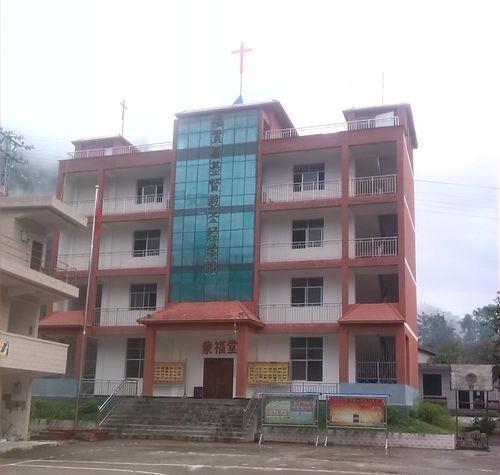Fugong County is a poverty-stricken town on the border of Yunnan Province with a majority Lisu population. The Lisu mostly believe in primitive animism. Over 100 years ago, Fugong became a famous "Gospel County" with the arrival of foreign missionaries. Pastor Li Guihua, chairman of CCC&TSPM of Fugong, said that Christians accounted for 70% of the entire population, but in the rural areas the percentage is as high as 90%, and almost every household believes in Jesus.
However, there are just six pastors most of whom are elderly and 62 preachers who serve the churches in more than 300 incorporated villages.
Therefore, the local church wants to elect and appoint clergymen like preachers, deacons, and ministry leaders based its actual needs. Well, the prerequisite for a pastor ordinand is to get a degree in theology in regular theological seminaries according to the strict ordination rules set by CCC&TSPM.
But a local worker said that it was hard for Lisu believers to study theology due to limits in various aspects.
The financial difficulty comes first. Lisu Christians who live on mountains have low incomes. Although the church receives tithings, it is a challenge to support a local believer to complete all the theological courses in cities like Kunming and Chengdu in three or four years.
Di Youtang, chairman of the FugongTSPM, said that in recent years, over ten theological graduates returned to the county, but were hardly used in the church. Di said, "Having no ministry experience, they who return to the church can't help the local churches with the theological knowledge they learned. Instead, they say words against local traditions. No matter how advanced theological knowledge they acquire, they who talk about empty theory without applying it in the traditional local way, whose knowledge is locally inapplicable, don't have opportunities to serve in the church."
He hoped that believers first serve in the church and learn about the local situation before pursuing theological education.
Meanwhile, the Fugong CCC&TSPM founded a Bible training center that offers Bible courses and other courses on Lisu language, the regulations on religious affairs, drug control, AIDS prevention, and anti-cult knowledge. After studying for three months, the students will be arranged to preach sermons in local churches while keeping studying. As of 2017, 960 people graduated from 11 training programs, 18 of whom were ordained as preachers. Every year the center admits more than 100 students who only cover their board expenses. The county CCC&TSPM temporarily collects funds to pay the operating fees and the faculty and staff salaries. There is no regular income.
In addition, there is no local systematic material. Speaking in Lisu language, the local church can't use the Chinese training material provided by CCC&TSPM. So generally speaking, the center translates Chinese textbooks into Lisu language and rewrites it again. Owing to the lack of manpower and limited level, the translation work has a long way to go.
The Lisu church in Yingjiang County, Dehong Prefecture, also encounters the same problem.
In 2016, Brother Kong was the only theological graduate in Sudian Lisu Village where there are a large number of Christians. He studied in a training center located in Longling County, Baoshan, then advanced in Yunnan Theological Seminary.
His challenge was how to preach to believers who were familiar with sermons given in the Lisu language after studying theology in Chinese. Kong shared, "I can't preach in ethnic minority languages after returning here. My congregation is Lisu believers who are averse to sermons spoken in Mandarin."
In theological seminaries, students like Kong study theology in Chinese. Only in Sunday services, ethnic minority students present hymns in their native languages.
To cultivate pastoral staff and layperson backbones, the church in Yingjiang opened a three-month training program that is held every four years. Dedicated to training Jingpo and Lisu preachers, the training center offers three language classes.
However, its financial difficulty makes it hard to hire full-time teachers. Most of the teachers are part-time and struggle to put food on the table. They have to farmlands or work in nearby places.
- Translated by Karen Luo














